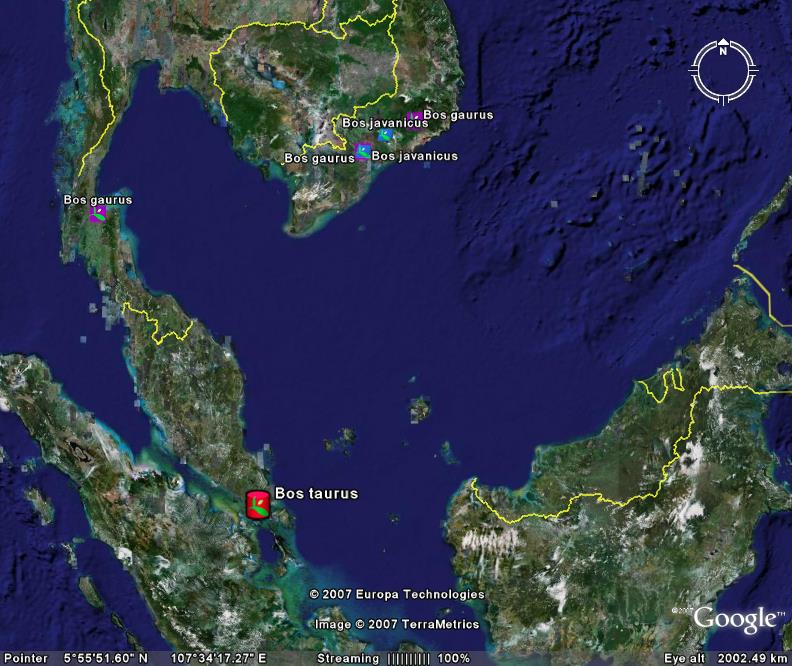Librarians will like this report on the International Forum on Drought.
Surveying diversity
The kind of survey where a researcher turns up at farmers’ houses and starts asking a lot of standard, rigid questions about the problems they have been having with their crops and livestock has been somewhat unfashionable of late. In fact, one of the reasons for the explosion of rapid rural appraisal (RRA) methodologies in the 1980s, followed by more participatory, often qualitative, methods (PRA) in the 1990s, was so-called “survey slavery: questionnaires surveys which took too long, misled, were wasteful, and were reported on, if at all, late.” 1
A way — in fact, a whole menu of ways — was found, as a result of the pioneering work of some NGOs and universities, of allowing people, even marginalized groups, to set the very agenda of research, as opposed to just answering a bunch of questions that researchers thought interesting.
But there is a place for well-designed, carefully tested and sensitively-administered surveys to document and analyze the ways farmers manage their resources — including their agrobiodiversity — and to provide a baseline against which to gauge the effectiveness of interventions or other possible changes. I want to talk about two recent papers that use farmer surveys to characterize farming systems, as examples of the kind of thing there might be more of in agricultural biodiversity work.
The first paper, on surveys of smallholder families in northern Pakistan, focuses on livestock production. 2 The surveys were done along two transects which contrasted markedly in their transport infrastructure. One of the things the researchers looked at was the percentage of cross-bred animals per household. They found that there was a higher proportion of such improved animals in the transect with well-developed transport links and more accessible markets than in the more isolated area. As the roads get better in this latter area, the researchers think that “the proportion of traditional, unimproved animals … is likely to diminish,” and there are also likely to be “changes in land use towards higher-value commodities such as potatoes.” An interesting conclusion about likely genetic erosion — in both crops and livestock — in the region. One could imagine using this kind of information to identify areas throughout the country which are at high risk of genetic erosion due to impending road building or improvement.
The second paper looked at the adoption of soil conservation practices in Kajado district, in the Rift Valley province of Kenya. 3 The researcher, Jane Kabubo-Mariara of the University of Nairobi, was particularly interested in whether population density and land tenure arrangements had an effect on the likelihood of farmers constructing soil bunds and terraces and planting trees. She found that as population pressure increases, there is a “significant shift towards increased individualization of tenure” and also a “higher probability of adoption of soil bunds and planting drought-resistant vegetation.” Now, that’s fascinating enough, but what caught my attention was the dog that didn’t bark. Wouldn’t it have been interesting to know whether farmers in high density areas grew more or fewer crops, and more or fewer varieties of each?
SPIN stands for S-mall P-lot IN-tensive
We received a message from SPIN Farming, a web site that aims to show people how to make a living from what is essentially urban agriculture. The site is basically a shop front, but as the method does make very good use of agricultural biodiversity, I decided it would be worth linking to. The bias is very North American but the methods and techniques are much more widely applicable.
Mapping wild bovids
Michael’s post on the kouprey made me realize how ignorant I am on the subject of wild bovids. That, and news of the launch of the new GBIF portal, prompted some online fun and games last night.

I’ll just give you the edited highlights here. But I guarantee that playing with the GBIF data portal will keep you busy — and entertained — for hours.
I searched for all Bos spp specimens that GBIF has occurrence data for, then downloaded the resulting kml file and opened it in Google Earth. The map above is just a view of the records for SE Asia. Not that many, and none for the kouprey. Bos javanicus is the banteng. The records in southern Vietnam refer to specimens (stuffed, presumably, or maybe just skins, I’m not sure) from the Field Museum in Chicago.
I got quite excited when I saw the name of the collector. One T. Roosevelt. But it was not to be. This T. Roosevelt collected (shot?) the banteng specimen now in the Field Museum in 1929, which is ten years after the first President Roosevelt died.
I also did similar things for a couple of crop wild relatives, but I’ll keep that for another time. Remember, one of the data providers to GBIF is SINGER, to the tune of over half a million records of germplasm accessions of crops and wild crop relatives.
Later that day: So GBIF has a thing where you can send feedback on individual records, so I did that for T. Roosevelt’s banteng and within a few hours I had a email back from Larry Heaney at the Field Museum. It turns out that we’re dealing here with Teddy Jr, the president’s son, who spent a lot of time on expeditions in Asia. Larry says that there are also some specimens around collected by Teddy Jr’s brother, Kermit. Thanks, Larry. I don’t know quite why, but this whole story made my day.
New (urban) Agriculturist
New New Agriculturist out: urban agriculture in spotlight.